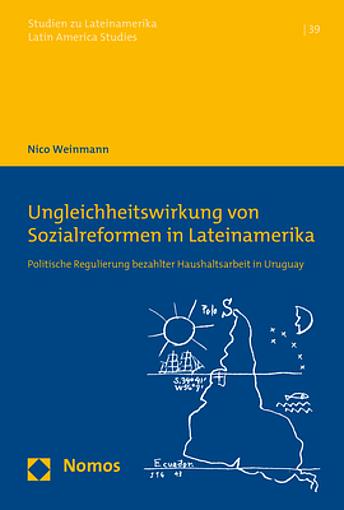englischPostmillennial social reforms implemented by the centre-left governments in Latin America aimed to achieve a significant reduction in inequality. This case study analyses the process of regulating domestic work in Uruguayan households, an internationally praised political development. Based on different sources, such as labour laws, parliamentary debates, political manifestos, qualitative interviews, social statistics and TV advertisements, the research shows that the implementation of a minimum wage, collective bargaining rights or the entitlement to social security had negligible effects on alleviating inequalities in this sector. The findings of the study allow us to generalise about other ambitious social reforms of that time. Furthermore, they question popular premises within Latin American studies. This study challenges the thesis that domestic work can be regarded as a prototype of ‘informal labour’ which is unregulated or even impossible to regulate.
Nach der Jahrtausendwende zielten neue Sozialreformen der (Mitte-)Linksregierungen in Lateinamerika auf eine Minimierung sozialer Ungleichheit ab. In dieser Studie wird der international gelobte Formalisierungsprozess bezahlter Haushaltsarbeit in Uruguay untersucht. Anhand der Analyse unterschiedlicher Quellen wie Arbeitsgesetze, Parlamentsdebatten, Programmschriften, Interviews, Werbespots oder Sozialstatistiken wird gezeigt: Die Einführung des Mindestlohns, von Tarifverhandlungen und neuen Sozialversicherungsansprüchen hatten eine ambivalente Ungleichheitswirkung auf den Sektor. Diese Befunde stehen beispielhaft für andere ambitionierte Sozialreformen jener Tage. Sie stellen zudem verbreitete Annahmen der Lateinamerikaforschung in Frage. Die These, dass bezahlte Haushaltsarbeit als Prototyp „informeller Arbeit“ politisch unreguliert oder unregulierbar sei, wird herausgefordert.


